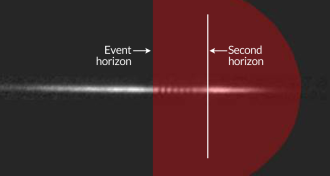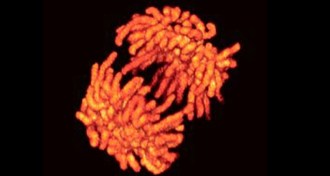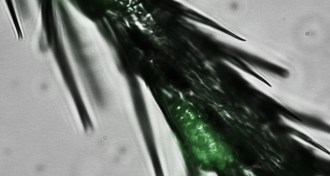News
-
 Animals
AnimalsHearing awful or great singing changes birds’ choice
A male bird’s serenade inspires reactions that depend on the quality of songs a female has been listening to.
By Susan Milius -
 Health & Medicine
Health & MedicineJet lag affects gut microbes
Jet-lagged bacteria in the gut impair mice’s metabolism, causing obesity and diabetes-related problems.
-
 Physics
PhysicsFalling raindrops break terminal velocity
Unknown mechanism causes tiny raindrops to fall faster than terminal velocity.
-
 Climate
ClimateRivers may gush under sullied skies
By dimming sunlight and curbing evaporation, air pollution can increase the amount of water flowing through rivers, new simulations suggest.
By Beth Mole -
 Quantum Physics
Quantum PhysicsHawking radiation spotted within sonic black hole
Lab-created sonic black hole emits energy as famed physicist Stephen Hawking predicted, though the experiment may not be definitive.
By Andrew Grant -
 Health & Medicine
Health & MedicineDrug-resistant staph common in football players
Athletes in contact sports should wash their hands (and dirty gym clothes) often, researchers say.
By Nathan Seppa -
 Science & Society
Science & SocietyNobels go to maps, LEDs, microscopy
The 2014 Nobel Prizes in chemistry, physics and physiology or medicine went to discoveries that defy single-discipline labels.
-
 Astronomy
AstronomyNearby galaxy might explain what tore apart universe’s hydrogen
A local galaxy is leaking enough ultraviolet light to ionize surrounding hydrogen, which could explain how the earliest galaxies transformed the universe.
-
 Health & Medicine
Health & MedicineImpotence drug boosts insulin in some with diabetes
A drug called yohimbine lets some people with diabetes secrete more insulin by stopping pancreas cells from binding adrenaline molecules.
-
 Genetics
GeneticsYeast smell underpins partnership with fruit flies
Yeast make fruity aromas that draw flies, which disperse the fungi. Researchers reveal the gene that underpins the mutually beneficial relationship.
-
 Animals
AnimalsRattlesnakes tutor robot on dune climbing
Snakes sidewinding up sand inspire design improvements for robots navigating treacherous slopes.
By Susan Milius -
 Chemistry
ChemistryMicroscopy providing ‘window into the cell’ wins chemistry Nobel
Three scientists use fluorescence and lasers to see single molecules and other tiny objects.
By Beth Mole and Meghan Rosen